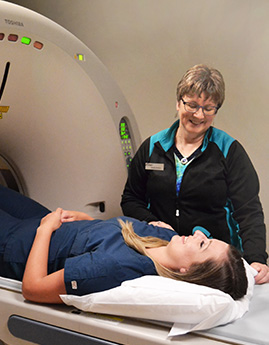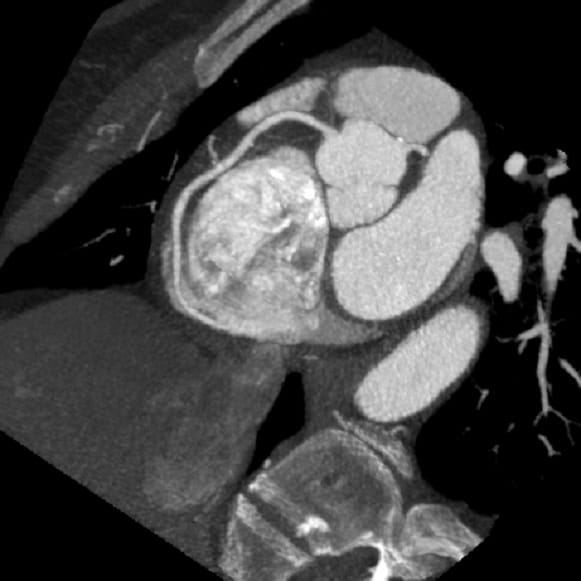Coronary Angiogram CT
Coronary angiogram CT is a non-invasive imaging study that helps identify fat and calcium deposits that have accumulated in the coronary arteries – the main blood vessels to your heart. These deposits, often referred to as plaque, can lead to blockages that can cause chest pain, shortness of breath, and heart attacks. This exam detects not only calcium deposits, but also soft plaque, including vulnerable plaque, which has been identified as the more likely cause of heart attack and sudden death.
What Happens During my Coronary Angiogram CT?
- The technologist will check your heart rate to monitor how your body has reacted to any beta blockers prescribed by your doctor for your exam.
- The technologist will also start an IV to administer a contrast agent.
- We then position you on the imaging table and attach heart-rate-monitor leads to your chest.
- The technologist will ask you to hold your breath for 10 to 15 seconds while we scan your coronary arteries. Your calcium score will be recorded, followed by a test bolus of IV contrast.
- We will spray nitroglycerin under your tongue to help dilate the arteries and generate high-quality images.
- We then perform the angiogram, which involves injecting a volume of contrast through your IV.
- After the CT scan is complete, one of our radiologists will review the results and send a detailed report to your doctor within a couple of business days.
Duration
A coronary angiogram CT generally takes only a couple minutes to acquire. Your entire visit should take less than 30 minutes.
Exam Preparation
Being prepared for your coronary angiogram CT helps us take the best possible images for diagnosis. Please visit our exam prep page for more instructions specific to CT angiogram preparation.



